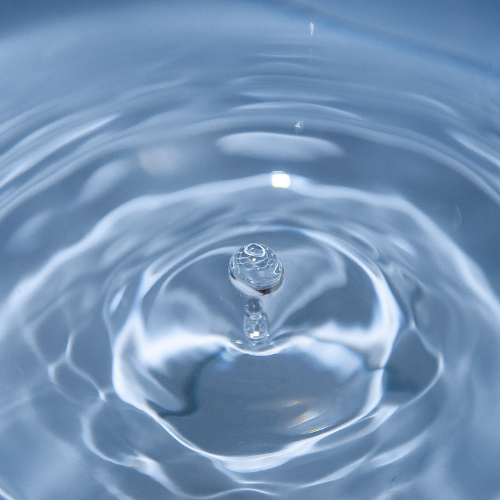Bridging worlds: A Comparative Analysis of Depression in Ayurveda, Traditional Chinese Medicine, and Modern Medicine
Abstract:
Depression is a complex and multifaceted condition affecting millions globally. While modern biomedicine offers scientifically grounded diagnoses and treatments, traditional systems like Ayurveda and Traditional Chinese Medicine (TCM) provide time-honored, holistic approaches. This article explores how each system conceptualizes, diagnoses, and treats depression, and how an integrative approach may offer the most comprehensive path to healing.
Introduction
Depression, or Major Depressive Disorder (MDD), is recognized by the World Health Organization as one of the leading causes of disability worldwide. Characterized by persistent sadness, loss of interest, and cognitive as well as physical dysfunction, it is often approached through modern psychiatry. However, alternative healing systems such as Ayurveda and Traditional Chinese Medicine have long histories of addressing emotional imbalance through personalized, holistic means. Understanding the strengths and limitations of each system reveals how they might complement one another in modern mental health care.
Understanding Depression: Differing Paradigms
Modern Medicine:
Depression is viewed as a neuropsychiatric disorder rooted in biochemical imbalances—primarily in serotonin, dopamine, and norepinephrine pathways. Environmental factors, genetics, and chronic stress play significant roles in its development.
Ayurveda:
In Ayurveda, depression is conceptualized as Vishada—a state of grief or gloom. It arises from an imbalance in the doshas, particularly Vata (air/ether) and Kapha (earth/water). Emotional trauma, improper lifestyle, toxic accumulation (ama), and disconnection from one’s dharma (life purpose) contribute to the condition.
Traditional Chinese Medicine (TCM):
TCM interprets depression as a result of qi stagnation, especially in the Liver, which governs the free flow of energy and emotions. Disharmonies in the Heart (which houses the Shen or spirit) and Spleen (associated with thought and worry) can also manifest as depressive symptoms. Emotional blockages and disruptions in organ energy systems are central to diagnosis.
Diagnostic Approaches
Modern Medicine:
Diagnosis follows standardized criteria such as the DSM-5. Clinical interviews, questionnaires (like the PHQ-9), and sometimes imaging studies are used to assess severity and rule out other medical causes.
Ayurveda:
Ayurvedic practitioners employ nadi pariksha (pulse diagnosis), darshanam (observation), and detailed patient histories to assess dosha imbalances and determine the emotional and physiological state of the patient.
TCM:
Diagnosis is based on tongue and pulse analysis, facial and vocal observations, and questions related to sleep, digestion, and emotional health. Practitioners identify patterns of disharmony rather than discrete diseases.
Treatment Modalities
Modern Medicine:
Treatments include pharmacotherapy (SSRIs, SNRIs, atypical antidepressants), psychotherapy (CBT, DBT), and in severe cases, interventions such as electroconvulsive therapy (ECT) or repetitive transcranial magnetic stimulation (rTMS). These methods aim to regulate brain chemistry and provide coping strategies.
Ayurveda:
Ayurvedic treatment targets the root imbalance through detoxification (panchakarma), herbal medicine (e.g., Ashwagandha, Brahmi, Jatamansi), dietary regulation, yoga, and meditation. A sattvic lifestyle—centered on purity, peace, and balance—is emphasized.
TCM:
Common therapies include acupuncture, Chinese herbal formulations (e.g., Xiao Yao San), qi gong, tai chi, and dietary therapy. These practices aim to restore energetic harmony and unblock emotional stagnation.
Strengths and Limitations
System Strengths Limitations
Modern Medicine Fast-acting relief; strong research base; effective in acute/severe cases. Side effects; does not address emotional/spiritual roots; potential for long-term dependency.
Ayurveda Holistic and personalized; addresses lifestyle and emotional health. Requires consistency; slower to show results; less clinical trial data.
TCM Emphasizes mind-body balance; gentle with minimal side effects. Dependent on practitioner skill; slower process; less accepted in conventional healthcare.
Integrative Potential
As awareness grows around mental health and holistic wellness, integrative medicine has emerged as a promising frontier. For example:
Mind-body techniques from Ayurveda (yoga, breathwork) and TCM (tai chi, acupuncture) are increasingly used alongside psychotherapy.
Herbal adaptogens such as Ashwagandha are being studied for their antidepressant properties in combination with pharmacological treatments.
Diet, sleep, and lifestyle counseling—once exclusive to traditional systems—are now recommended by psychiatrists as part of comprehensive care.
When supervised by qualified professionals, integrative approaches offer a broader spectrum of care, addressing not only the symptoms but also the root causes and the person as a whole.
Conclusion
Depression is a complex interplay of biology, emotion, lifestyle, and sometimes, spiritual disconnection. While modern medicine provides critical tools for managing acute symptoms, Ayurveda and TCM offer profound insights into long-term healing and emotional balance. A synergistic, integrative approach that respects the wisdom of both East and West may ultimately serve patients best—healing not just the mind, but the whole being

